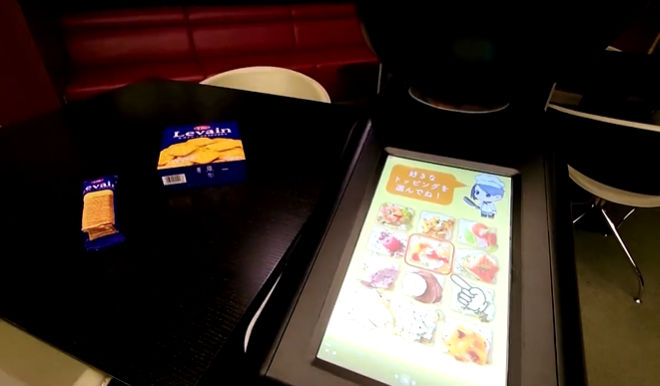In another step towards multi-sensory viewing experience, a Japanese professor from Meiji University in Tokyo has developed a first-of-its-kind lickable TV screen that can imitate the flavours of food. The peculiar invention has several practical applications too, including but not limited to facilitating distance learning for budding chefs and enabling remote tasting games and game shows.
The device, called Taste the TV (TTTV), was developed by professor Homei Miyashita, who, in tandem with a team of 30 Meiji University students, has developed a variety of taste-related devices, including a fork that enhances the taste of food.
The device contains a carousel of 10 flavour canisters (with flavours such as sweet, sour, salty, bitter, savoury etc.) that can spray in particular combinations to create the taste of particular food items. The canisters spray the flavours on to a “hygienic film” on the TV screen, which users can lick to taste the food. In a demonstration for reporters, one of Miyashita’s students told the TTTV that she wanted to taste sweet chocolate. After a few attempts, the device responded, repeated the order, and sprayed a combination of flavours on to the film on the TV screen, and the taste was that of “milk chocolate…like a chocolate sauce.”
Miyashita’s device is also relatively affordable, and the professor estimates that producing TTTVs on a commercial scale would cost around 100,000 yen per unit, roughly around $875 (Rs. 65,699). Given the commercial viability of his invention, the professor is also reportedly in talks with several companies about using the spray technology in devices for applying flavours to slices of toasted bread.
Commenting on his latest invention, Miyashita told The Guardian, “The goal is to make it possible for people to have the experience of something like eating at a restaurant on the other side of the world, even while staying at home.” Given the COVID-19 pandemic and its associated restrictions, the device could also help people reconnect and interact with the outside world in a novel way, the professor added.







